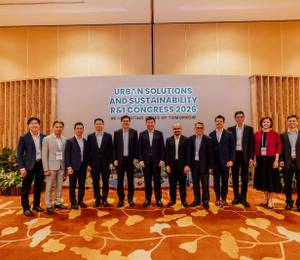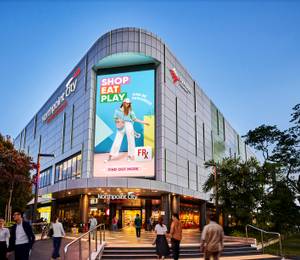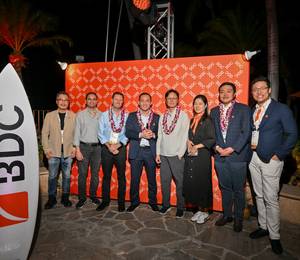Singapore, Hong Kong, Australia, Dubai – Hotel operators around the world are discovering the growing numbers of guests with an appetite for five-star sustainable experiences. As CEO of the Global Sustainable Tourism Council (GSTC), Randy Durband, said during the event, governments are beginning to put regulations in place to help reducing the hospitality sector’s environmental impact.
Key takeaways from the discussion included:
- There is an urge for hotel properties to develop their own decarbonisation pathways to align with national net zero targets of the 1.5°C pathway (or the Nationally Determined Contribution) that respective local governments have committed.
- The franchise model can be a barrier for sustainability where there is a mismatch between owner ESG goals and operator practices.
- Hotel operators can easily uplift the energy efficiency of their properties by leveraging the existing energy data and analysing the energy performance.
- Sustainable certification schemes should be verified by a third party to ensure the hospitality industry’s decarbonisation efforts are standardised.
The Navigating Hospitality’s Journey to Net Zero event brought together speakers from Australia, Asia and the Middle East, including ESG Manager for Pro-invest Group (Australia), Cindy Van Der Wal; Randy Durband from GSTC; Jamey Ford, Global Head of Engineering for Kerzner International; Mario Saab, Head of Sustainability – MENA at Cundall; and Matt Carlisle, Sustainability Associate Director, Cundall Singapore.
Attendees from around the world dialled into the event to hear the panel discuss the current drivers for emission reduction and operational improvements. These consist of a growing number of travellers, including the lucrative corporate travel sector, who are basing their booking decisions on the sustainability aspects of a destination, not just the décor, dining menu and guest experiences.
Several of the panellists noted that self-regulation by operators in response to this clear customer trend has not achieved the sector-wide shift required to ensure hospitality aligns with the wider global transition towards a sustainable society.
Governments are now making efforts towards their national net zero targets of the 1.5°C pathway from the hospitality aspect. Durband cited Türkiye as a leading example, with the government mandating all operators in the country must be certified through a GSTC-Accredited Certification Body by 2030, and as part of their progress towards this undertake comprehensive environmental auditing and performance improvements – or they lose their license to operate.
Mario Saab noted that adopting sustainable practices has benefits for visibility in booking platforms where potential customers can use sustainability as a criteria, and more broadly for the reputation and branding of an operator.
For Van Der Wal, another aspect of the push for effective and practical steps to best practice sustainability and net zero operations is investor expectations. The Pro-invest group has utilised benchmarking via NABERS as part of its strategy to decarbonise key assets, a move that gained investment support from Australia’s Clean Energy Finance Corporation. Taking it a step further, GRESB reporting was implemented, and the group is now working on a Science-Based Targets Initiative pathways to net zero.
Van Der Wal said Pro-invest is seeing benefits with this approach in terms of access to green loans and institutional investor appetite “right across the globe”.
Matt Carlisle observed that regulation can also equalise the playing field. “If everyone has to move (on sustainability), then no-one is disadvantaged,” Carlisle said.
Kerzner International is working to align its operations with the United Arab Emirates’ ambition to be a global green centre for low carbon energy by 2050, Jamey Ford explained. He showcased the group’s holistic approach to mapping and acting on sustainability with a case study of the spectacular Atlantis, The Palm in Dubai, where a 2022 project to install a filtered water bottling plant to supply 1544 guest rooms has to date removed over eight million 330ml one use plastic bottles from the hotel supply chain – and from landfill.
Other case studies shared by speakers including Pro-invest Group’s Hotel Indigo Flinders in Melbourne; Cundall’s sustainability services developing a net zero pathway for Msheireb Properties’ assets including hotels, apartments and commercial offices in downtown Doha; and the Singapore Tourism Board’s Hotel Sustainability Roadmap.
The full conversation can be watched here: https://www.cundall.com/ideas/video/navigating-hospitalitys-journey-to-net-zero.
















